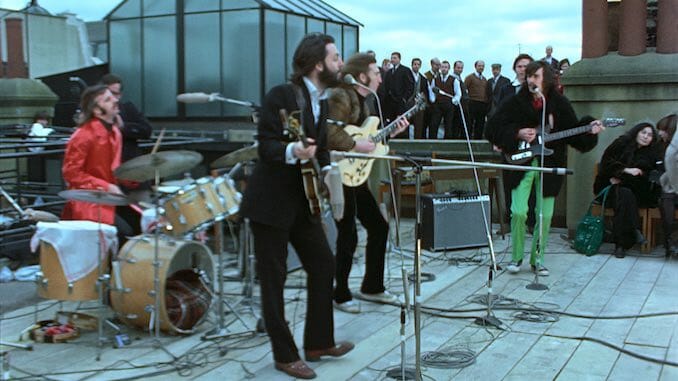With Get Back, Paul McCartney Became the Most Interesting TV Character of 2021
Photo Courtesy of Disney+
In life, I think, there are only three ways that we can relate to the Beatles, which is fewer than you could say for any other band. (Yes, okay, there are probably people—probably millions of people, on this planet—who simply don’t know them, but this is Paste and you know what I mean.)
The overwhelming majority of us fall into the three basic camps. First, the obsessed devotees, of which there are many. Second, the iconoclasts who delight in blowing our minds with radical takes like, “actually, the Beatles suck.” And third, my group: the “casuals” who appreciate the music but aren’t diehards. That’s most of us, I think, but the sheer status of the Beatles means that even casuals aren’t truly casual… which is why even for people like me, it’s such a thrill to watch the most famous band in human history interact in the Get Back docuseries. This is one of those moments that, historically, we’re not supposed to be able to see. Imagine, if you’re a sports fan, being inside the locker room before The Miracle on Ice; or if history is your thing, being privy to Abraham Lincoln’s private conversations. Seeing the Beatles on the verge of making an album, and also on the verge of breaking up, is supposed to be one of those forbidden historical scenes left to conjecture and thirdhand retellings, and yet there we are, right in the thick of it, hearing every whisper.
The greatest revelation, to a casual like me, is young Paul McCartney. My perception of him coming in was almost certainly a product of not studying the subject deeply enough, but I thought of McCartney as a sort of happy puppy dog figure, a la Mr. Peanut Butter in Bojack Horseman, a poppy contrast to the brooding, poetic/psychedelic genius of John Lennon. With age, McCartney’s face has become even more nonchalant on the surface, a carefree mien that reflects the soul to someone who writes effortless pop songs but perhaps doesn’t feel life quite as acutely as a Lennon type.
In Get Back, I realized within minutes exactly how wrong I’ve always been. Above all, the two things that struck me most were McCartney’s sheer intensity and his ridiculous, irrepressible talent. The latter might sound awfully obvious—this is Paul McCartney, idiot, of course he’s an otherworldly talent—but watching him rehearse, riff off his fellow Beatles, and invent melody from thin air makes it clear that I never came close to understanding the scope of it. Much has already been written about the scene where he invents the song “Get Back,” and while I know this is how many songs are written, and that Peter Jackson may have fudged with the timeline a bit, I don’t care—watching someone like that channel the muses in such a sudden burst of inspiration, seemingly from thin air, is distilled magic, and I consider it one of the best two minutes of television I’ve ever seen. The fact that it exists is a dream.
(Also: How the hell did somebody have this footage and sit on it for 50 years??)
But McCartney’s intensity is something else entirely, and totally unexpected. Far from an innocent, he’s infused with pure energy; in ways subtle and overt, he can’t help imposing himself on everyone around him. Even when he’s in his “unfailingly polite” mode—as Michael Lindsay-Hogg is at his most insufferable rambling on about Arabs holding torches—he’s brimming with hidden force, the biggest person in the room. (For those of us who find ourselves having to stay measured in the face of nonsense, particularly around the holidays, McCartney is a great teacher.)
-

-

-

-

-

-

-

-

-

-

-

-

-

-

-

-

-

-

-

-

-

-

-

-

-

-

-

-

-

-

-

-

-

-

-

-

-

-

-

-








































